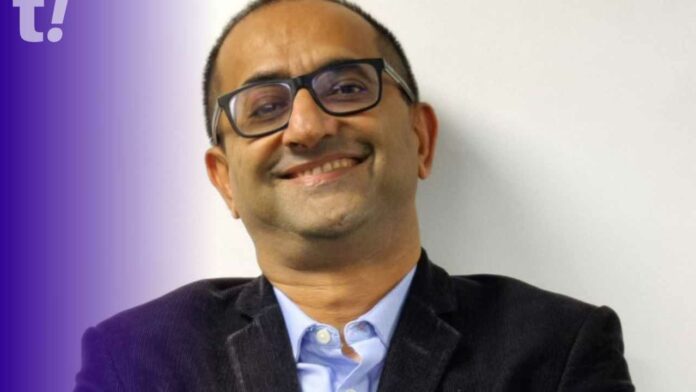In this interview, MedLern Co-founder & CEO Deepak Sharma spoke about the company’s full-stack training solution and how its AI-driven simulation training is helping hospitals manage complex training needs across departments while enhancing better patient outcomes and operational efficiency.
Read the complete interview:
TechGraph: Can you give us an overview of MedLern’s technology and services?
Deepak Sharma: MedLern is a full-stack training and talent development solution for the healthcare sector. Human Talent, despite having a decisive impact on the quality of care and business performance, remains underinvested and underleveraged in the Hospital sector.
MedLern is helping hospitals create significant value by giving them a complete solution to manage their training needs. Traditionally hospitals have struggled to manage the complex landscape of all the training needs across multiple departments and employee profiles.
Adding to this the challenges of knowledge retention, unpredictable workloads, measurement of impact on on-the-job performance, etc., and you have the result that Hospitals struggle to barely meet the bare compliance norms required by NABH.
Even the largest hospitals in the country are probably doing less than 30% of the training of their resources that they need to. This impacts patient outcomes, creates avoidable risks, and reduces overall profits.
MedLern has changed that with its full-stack approach. A range of well-designed tools and workflows make the planning, delivery, monitoring, and measurement of all training.
With a full suite of quality, operations, nursing, service excellence, compliance, induction, and emergency codes training available – the smallest to the largest hospital can implement a time-efficient protocol that can show real impact in 60-90 days.
MedLern also offers additional subscriptions to Expert Masterclasses for Nursing, Simulation as a Service from the American Heart Association (AHA), and specialized areas like critical care, patient safety, service excellence, and infection control from global leaders RCNi (a subsidiary of the Royal College of Nursing UK), Emergency Nurses Association (ENA), British Medical Journal (BMJ) Learning, etc. The cloud-based SaaS model ensures a low investment model for hospitals and continuous upgrades to new features as they are released.
TechGraph: How does MedLern differentiate itself from other med-tech companies in the market?
Deepak Sharma: MedLern, incubated at Impelsys, has helped deliver platform-based training to thousands of global hospitals as part of its partnerships with the American Heart Association, and Laerdal. It has re-innovated India by creating and curating.
As a full-stack training solution, MedLern is addressing the issue of big underinvestment in the healthcare talent sector resulting in the lack of training and availability of skilled healthcare professionals as the biggest problem in the healthcare sector. MedLern has the pedigree of solving such issues in the past working with global partners like AHA.
MedLern has come out with high-impact and highly engaging training features like Local Language and Microlearning which caters to the local needs of implementing training with precise digital content from some of the world’s leading healthcare educators.
Apart from the cutting-edge technologies that it employs and the high-quality learning programs that it offers, the fact that it can cater to the needs of individual students and professionals, hospitals, and medical educational institutions at all levels makes MedLern truly unique. Its instructor’s resuscitation program on Basic Life Support (BLS), Advanced Cardiovascular Life Support (ACLS), and Paediatric Advanced Life Support (PALS) co-developed and powered by American Heart Association (AHA) and Laerdal Medical technology has particularly generated a lot of buzzes as well as demand in the healthcare education market.
In addition, from the point of view of hospitals and medical institutions, MedLern’s products and services have been estimated that the cost of training personnel is reduced to less than half. Moreover, there are up to 60% savings in faster time to productivity or onboarding to productivity (OTP) of personnel. We have become a trusted partner for more than 310 hospitals and 83,000 healthcare professionals in a short period.
TechGraph: With the pandemic accelerating the adoption of telemedicine and virtual care, how has MedLern adapted to meet the changing needs of the healthcare industry?
Deepak Sharma: The Covid pandemic has forced the pace of adoption of digital channels and supply chains. With the rising adoption of telehealth, the at-home supply of diagnostic services and drugs increased significantly. This fast-digitizing healthcare has also coincided with the need for a greater number of skilled healthcare professionals at all levels of care delivery.
With this in mind, MedLern has finetuned its underlying technologies and platforms with an eye on not only delivering quality training to a much higher number of learners than before but also reworking its content and material portfolio to cater to chronic care management as also basic life support, critical and emergency care, sectors that would require more attention in the post-Covid times.
More importantly, MedLern has also come up with digital training and upskilling programs for healthcare personnel including doctors, nurses, and others, a much-needed intervention in a rapidly-digitalizing healthcare service landscape.
TechGraph: What challenges has MedLern faced while developing and implementing its med-tech solutions?
Deepak Sharma: I think some of the biggest challenges that we encountered along the way were related to the lack of a culture of digitized training and education for a large number of healthcare professionals, especially in smaller towns. Catering to people comfortable only in vernacular languages was also a challenge.
At the same time, besides the unreliable electricity connections, the deficiency in foundational infrastructure such as optical fiber and broadband connectivity leading to erratic and inconsistent high internet speed has been a challenge. However, I am sure that the government as well as the private sector is working earnestly to resolve these issues.
MedLern has been addressing challenges unique to healthcare like high attrition rates, rapid knowledge decay, precise training at the point of care, and establishing a clear value proposition connecting both patient care and the operating performance of the hospital.
MedLern as a service model has been helping hospitals measure impact in both knowledge and on-the-job performance and enable self-paced training at the convenience of the employees by including unique features like microlearning and training in local languages to engage the employees as an innovative approach to overcome these challenges.
TechGraph: In what ways does MedLern work with healthcare providers and institutions to improve patient outcomes and the overall healthcare experience?
Deepak Sharma: Essential training is required to minimize patient safety incidents which take a huge toll on the well-being and patient outcomes within a hospital setting. MedLern addresses these with specific programs for minimizing avoidable incidents like falls, hospital-acquired infections, readmissions, etc.
MedLern focuses on providing essential training for the hospital workforce like standardizing resuscitation training for all patent-facing healthcare professionals. Our training programs are designed to guide healthcare workers in service excellence and counsel them to deal with their patients with empathy to provide safer and better care.
With top-grade training and skilling programs being provided to healthcare providers and institutions, not only the quality of care improves tremendously from the patient standpoint in any health setting, but it also eases administrative and workflow-related hassles within hospitals and healthcare facilities.
Due to well-worked out intra-hospital communication channels paving the way for smoother workflow, there is minimal wastage of resources and time leading to overall operational and cost-efficiencies.
So, while this improves patient outcomes, on the one hand, it also raises a hospital’s reputation and credibility among patients and the general public. At the same time, the enhanced reputation also improves the environment of the hospital as a workplace for potential employees thereby attracting good talent while also leading to better retention and employee engagement.
TechGraph: What are some of MedLern’s future goals and plans, both in terms of technology development and business growth?
Deepak Sharma: While further refining the underlining technologies, based on ever-increasing data, we would improve algorithms for more improved customer/learner experience and outcomes in the coming years.
Also, by combining big data with geolocation technologies, we would map as well as forecast the needs of most hospitals, medical colleges, and healthcare training institutions across the country.
We aim to cater to as many institutional as well as individual customers in the shortest period. Also, we intend to tie up with more globally-recognized medical curricula builders and curators in the coming years.
With new offerings such as local language-based training, practical skills for nursing using our partnership with Laerdal (a leader in medical simulation), and instructor-led training, we also aim to expand our service footprint to new geographies outside India.
Serving hospitals, medical professionals, and patients alike, MedLern’s mission is to be a lifelong learning partner for healthcare professionals and improve both hospital performance and patient outcomes.
TechGraph: Can you speak to any recent partnerships or collaborations MedLern has formed with other companies or organizations in the med-tech space?
Deepak Sharma: One of the recent collaborations in the med-tech space is with RQI Partners (a partnership between the AHA and Laerdal Medical) to deliver high-quality CPR training to healthcare professionals in India.
This blended training combines technology with hands-on skills training to help learners acquire and demonstrate life-saving skills.
TechGraph: How does MedLern stay up-to-date with the latest advancements in medical technology and incorporate them into its platform?
Deepak Sharma: Through continuous innovation and leveraging AI in simulation training with global partners like the American Heart Association and Laerdal Medical Technology. MedLern is advancing in developing markets forging intellectual property alliances with key global partners to be incorporated into the roadmap.
Apart from having medtech professionals in-house who have a longstanding experience in the industry and have been proven and avid industry watchers, we are an active participant at most of the leading medtech-related global events including conferences, seminars, and exhibitions that take place from time to time.
In addition, we also have subscriptions to the leading knowledge repositories and databases that have top-ranked journals and research papers with the latest research insights and practices related to medical, health, and educational technologies.
TechGraph: What impact do you see MedLern having on the healthcare industry in the next five to ten years?
Deepak Sharma: MedLern aims to expand and upgrade the pool of skilled and qualified healthcare workforce addressing the issues of training availability in every nook and cranny of the country and reducing the skill gap. MedLern will be the standard for talent development creating and establishing competency standards for the benefit of the entire healthcare workforce.
With the combination of healthtech and edtech likely to shape the future of medical learning in the coming years, MedLern would be an important part of the Indian growth story.
For a country that already suffers from a high disease burden as well as healthcare infrastructure and personnel deficit, the increased investment in developing a greater number of healthcare facilities and clinics would generate the requirement for an extraordinary number of additional healthcare professionals and other support staff across the country including in tier II and III towns and the rural hinterland. MedLern would contribute to the training and skilling of a substantial pool of the healthcare workforce in the coming years.



